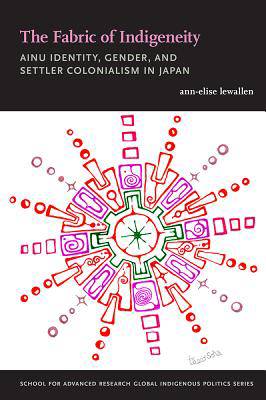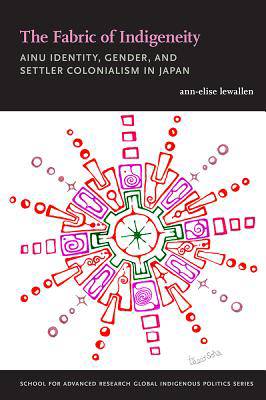
Bedankt voor het vertrouwen het afgelopen jaar! Om jou te bedanken bieden we GRATIS verzending (in België) aan op alles gedurende de hele maand januari.
- Afhalen na 1 uur in een winkel met voorraad
- In januari gratis thuislevering in België
- Ruim aanbod met 7 miljoen producten
Bedankt voor het vertrouwen het afgelopen jaar! Om jou te bedanken bieden we GRATIS verzending (in België) aan op alles gedurende de hele maand januari.
- Afhalen na 1 uur in een winkel met voorraad
- In januari gratis thuislevering in België
- Ruim aanbod met 7 miljoen producten
Zoeken
The Fabric of Indigeneity
Ainu Identity, Gender, and Settler Colonialism in Japan
Ann-Elise Lewallen
€ 60,45
+ 120 punten
Omschrijving
In present-day Japan, Ainu women create spaces of cultural vitalization in which they can move between being Ainu through their natal and affinal relationships and actively becoming Ainu through their craftwork. They craft these spaces despite the specter of loss that haunts the efforts of former colonial subjects, like Ainu, to reconnect with their pasts. The author synthesizes ethnographic field research, museum and archival research, and participation in cultural-revival and rights-based organizing to show how women craft Ainu and indigenous identities through clothwork and how they also fashion lived connections to ancestral values and lifestyles. She examines the connections between the transnational dialogue on global indigeneity and multiculturalism, material culture, and the social construction of gender and ethnicity in Japanese society, and she proposes new directions for the study of settler colonialism and indigenous mobilization in other Asian and Pacific nations.
Specificaties
Betrokkenen
- Auteur(s):
- Uitgeverij:
Inhoud
- Aantal bladzijden:
- 328
- Taal:
- Engels
- Reeks:
Eigenschappen
- Productcode (EAN):
- 9780826357366
- Verschijningsdatum:
- 1/10/2016
- Uitvoering:
- Paperback
- Formaat:
- Trade paperback (VS)
- Afmetingen:
- 152 mm x 229 mm
- Gewicht:
- 521 g

Alleen bij Standaard Boekhandel
+ 120 punten op je klantenkaart van Standaard Boekhandel
Beoordelingen
We publiceren alleen reviews die voldoen aan de voorwaarden voor reviews. Bekijk onze voorwaarden voor reviews.









